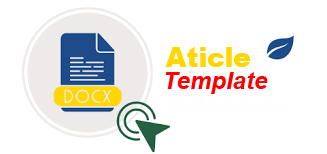Analisis Kualitatif Pengaruh Tata Kelola TI Terhadap Transformasi Digital dan Kinerja: Studi Kasus Asuransi A
DOI:
https://doi.org/10.30865/jurikom.v9i5.4878Keywords:
IT Governance, Digital Transformation, Organizational Performance, Case study, Insurance, IndonesiaAbstract
The emergence of digital technology, innovation competition and government regulations Making BUMN 4.0 disrupt incumbent organizations must carry out digital transformation (DT). It turns out that many of TD's efforts fail to live up to expectations due to poor governance. Previous studies have proven the role of IT governance (ITG). Unfortunately, there are still few studies exploring the mechanism of hybrid ITG that affects DT and organizational performance (OP). Therefore, we propose a research question about how the 46 ITG mechanisms affect DT and OP in the Indonesian insurance industry. Insurance A was chosen because there is a strategic direction for TD acceleration as the basis for digitization. Case study method with qualitative data collection through semi-structured interviews and thematic analysis. This study resulted in 4 themes, 19 sub-themes, and 60 codes and succeeded in demonstrating the mechanism of hybrid ITG that affects DT and the dimensions of DT that affect the achievement of knockout targets through the perspective of BSC in the insurance industry. This research is expected to be a reference for further research as well as an implementation reference to oversee the journey of DT, especially in the insurance industryReferences
V. Gurbaxani dan D. Dunkle, “Gearing up for successful digital transformation,†MIS Q. Exec., vol. 18, no. 3, 2019, doi: 10.17705/2msqe.00017.
K. S. R. Warner dan M. Wäger, “Building dynamic capabilities for digital transformation,†Long Range Plann., vol. 52, no. 3, 2019.
C. Gong dan V. Ribiere, “Developing a unified definition of digital transformation,†Technovation, vol. 102, no. July 2020, hal. 102217, 2021, doi: 10.1016/j.technovation.2020.102217.
J. Jewer dan N. Van Der Meulen, “Governance of Digital Transformation: A Review of the Literature,†Proceedings of the 55th Hawaii International Conference on System Sciences. 2022. doi: 10.24251/hicss.2022.804.
N. Obwegeser, T. Yokoi, M. Wade, dan T. Voskes, “7 Key Principles to Govern Digital Initiatives,†MIT Sloan Manag. Rev., vol. 61, no. 3, hal. 1–9, 2020.
R. Mulyana, L. Rusu, dan E. Perjons, “IT Governance Mechanisms Influence on Digital Transformation: A Systematic Literature Review,†in Twenty-Seventh Americas’ Conference on Information Systems (AMCIS), Digital Innovation and Entrepreneurship, Virtual Conference, August 9-13, 2021., 2021, hal. 1–10.
R. Peterson, “Crafting information technology governance,†Inf. Syst. Manag., vol. 21, no. 4, hal. 7–22, 2004, doi: 10.1201/1078/44705.21.4.20040901/84183.2.
S. De Haes, W. Van Grembergen, A. Joshi, dan T. Huygh, “Enterprise Governance of IT,†in Enterprise Governance of Information Technology, Springer, 2020, hal. 15–74.
P. Gomber, R. J. Kauffman, C. Parker, dan B. W. Weber, “Institutional Knowledge at Singapore Management University On the Fintech revolution : Interpreting the forces of innovation , disruption and transformation in financial services On the Fintech Revolution : Interpreting the Forces of Innovation , Disrupti,†J. Manag. Inf. Syst., vol. 35, no. 1, hal. 220–265, 2018.
“Peraturan Menteri BUMN PER-03/MBU/02/2018 tanggal 12 Pebruari 2018 | JDIH Kementerian BUMN.â€
P. Soto-Acosta, “COVID-19 Pandemic: Shifting Digital Transformation to a High-Speed Gear,†Inf. Syst. Manag., vol. 37, no. 4, hal. 260–266, 2020, doi: 10.1080/10580530.2020.1814461.
R. Mulyana, L. Rusu, dan E. Perjons, “IT Governance Mechanisms that Influence Digital Transformation : A Delphi Study in Indonesian Banking and Insurance Industry,†PACIS 2022 Proc., hal. 1–16, 2022.
R. S. Kaplan dan D. P. Norton, “The balanced scorecard: Measures That drive performance,†Harv. Bus. Rev., vol. 83, no. 7–8, 2005.
A. R. Rincon, J. Jewer, dan G. Y. Ke, “IT governance and continuous digital innovation: Insights from a delphi study in the oil and gas industry,†26th Am. Conf. Inf. Syst. AMCIS 2020, hal. 0–10, 2020.
S. Vejseli, A. Rossmann, dan K. Garidis, “The Concept of Agility in IT Governance and its Impact on Firm Performance Performance,†ECIS2022 Res. Pap., no. 98, hal. 6–18, 2022, [Daring]. Tersedia pada: https://aisel.aisnet.org/ecis2022_rp/98
J. Jöhnk, P. Ollig, P. Rövekamp, dan S. Oesterle, “Managing the complexity of digital transformation—How multiple concurrent initiatives foster hybrid ambidexterity,†Electron. Mark., vol. 32, no. 2, hal. 547–569, 2022, doi: 10.1007/s12525-021-00510-2.
M. Denscombe, “The good research guide for small-sacle socail research projects,†Biddles Ltd, Guildf. King’s Lynn, Gt. …, hal. 93–105, 1998.
A. K. Shenton, “Strategies for ensuring trustworthiness in qualitative research projects,†Educ. Inf., vol. 22, no. 2, hal. 63–75, 2004.
H. Davies dan M. Zhivitskaya, “Three Lines of Defence: A Robust Organising Framework, or Just Lines in the Sand?,†Glob. Policy, vol. 9, no. June, hal. 34–42, 2018, doi: 10.1111/1758-5899.12568.
V. Braun dan V. Clarke, “Qualitative Research in Psychology Using thematic analysis in psychology Using thematic analysis in psychology,†Qual. Res. Psychol., vol. 3, no. 2, 2006.
I. S. A. and C. Association, COBIT® 2019 Framework: Governance and Management Objectives. ISACA, 2018.







